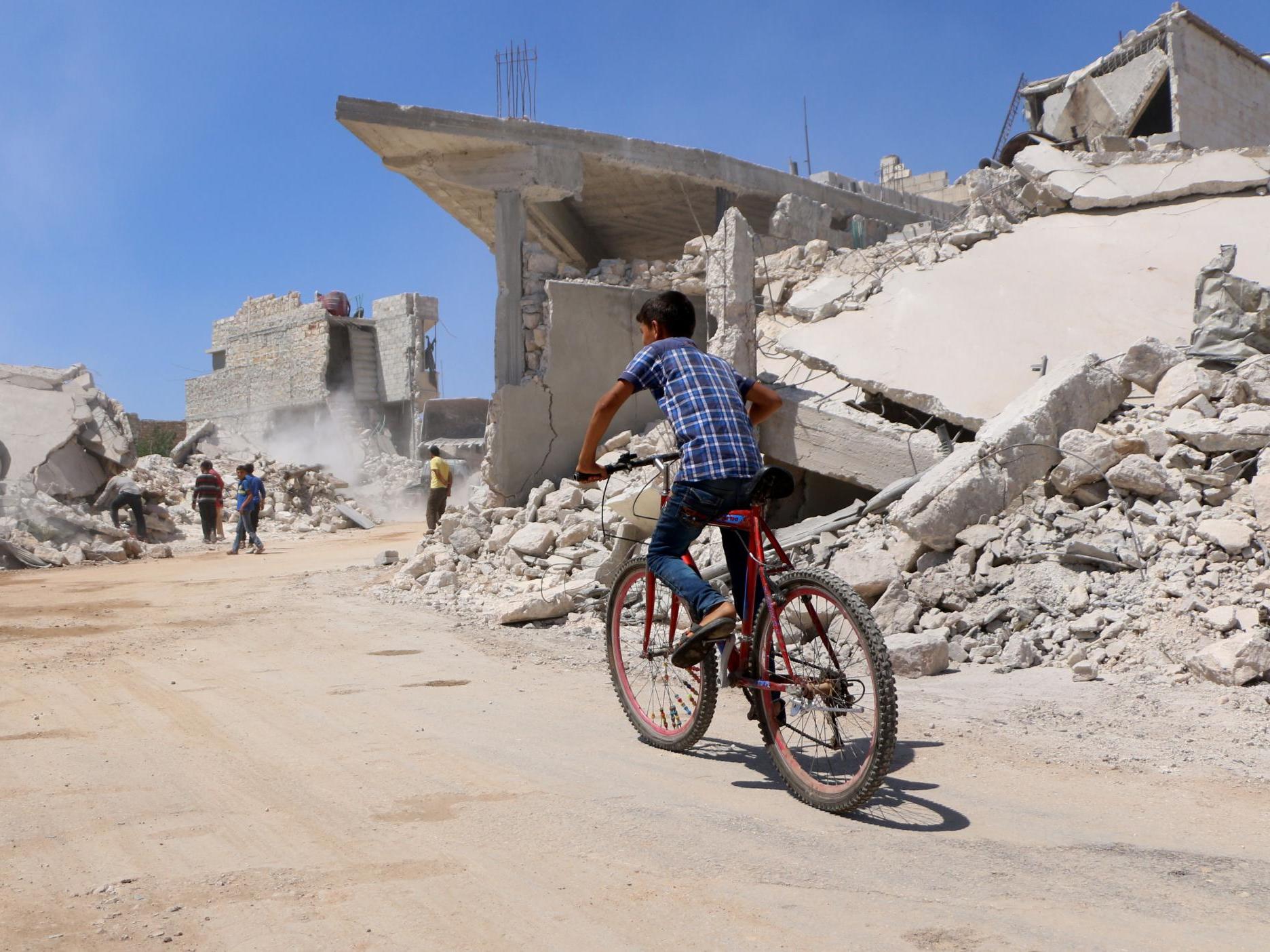UK cuts aid funding for programmes in rebel-held Syria
Government denies decision is related to investigation which linked Western-sponsored police forces in opposition areas to jihadist groups

Your support helps us to tell the story
From reproductive rights to climate change to Big Tech, The Independent is on the ground when the story is developing. Whether it's investigating the financials of Elon Musk's pro-Trump PAC or producing our latest documentary, 'The A Word', which shines a light on the American women fighting for reproductive rights, we know how important it is to parse out the facts from the messaging.
At such a critical moment in US history, we need reporters on the ground. Your donation allows us to keep sending journalists to speak to both sides of the story.
The Independent is trusted by Americans across the entire political spectrum. And unlike many other quality news outlets, we choose not to lock Americans out of our reporting and analysis with paywalls. We believe quality journalism should be available to everyone, paid for by those who can afford it.
Your support makes all the difference.The British government is ending funding for aid programmes in rebel-held Syria as president Bashar al Assad moves to crush the last opposition stronghold in the war-torn country.
The security situation in Syria’s remaining rebel pockets means it is too risky to continue support for the Free Syria police force and Access to Justice and Community Service (Ajacs) programme, a government spokesperson confirmed to The Independent on Monday.
“Along with the [rescue service] the White Helmets, the Free Syrian police is one of the best revolutionary foundations we established,” Wissam Zarqa, an English teacher turned activist displaced from Aleppo to Idlib province last year, told The Independent.
“We will need to find alternative sponsors. It will be difficult,” he added.
The decision comes as Syrian government forces close in on Syria’s northwestern Idlib province.
“As the situation on the ground in some regions has become increasingly difficult, we have reduced support for some of our non-humanitarian programming, but continue to deliver vital support to help those most in need and to improve security and stability in the country,” the government spokesperson said.
The area is now home to around 2.9 million people, many of them displaced from other parts of the country after successful recent government offensives to retake east Aleppo, the Damascus suburbs of eastern Ghouta and southern Deraa province.
The department for international development and foreign office’s focus in Idlib is shifting to humanitarian needs: minister for the Middle East Alistair Burt announced last week an extra £10 million in emergency funding for the area, including four new health centres and an early warning system for airstrikes which works by using remote sensors to detect incoming aircraft.
“The UK is supporting thousands of vulnerable Syrians living in the north of the country by helping children to stay in school and securing jobs. This is in addition to providing lifesaving emergency aid for millions of vulnerable people,” a spokesperson said.
The two long standing, large scale law and justice projects will close down by the end of September.
The confirmation comes after The Times reported the independent police force, as well as local council funding, will be scrapped by the end of the financial year.
A government statement stressed that the decision was not connected to the allegations made in a BBC Panorama investigation last year which found that the Free Syria police force was largely controlled by jihadist forces such as Hayat Tahrir al-Sham.
The government said it continues to reject the BBC’s findings.
Britain spent £152 million in aid to Syria in the last financial year, and has been one of the opposition’s largest western backers since popular Arab Spring uprisings began against Damascus' repressive government in 2011.
Western states have also provided assistance to armed rebel groups in the hope of overthrowing the regime, but after Russia intervened in Mr Assad’s favour in 2015, the tide of the complex conflict shifted against opposition forces.
Last week, the US also announced the axing of $230 million (£180 million) in aid to areas of Syria previously controlled by Isis.
The ongoing humanitarian needs and efforts to stabilise the largely-destroyed towns will now be met by $300 million (£235 million) in new contributions from regional US allies such as Saudi Arabia and the UAE, the state department said.
The now seven-year-old war has killed at least 500,000 people and displaced half of Syria’s pre-war population of 22 million people from their homes.
Join our commenting forum
Join thought-provoking conversations, follow other Independent readers and see their replies
Comments